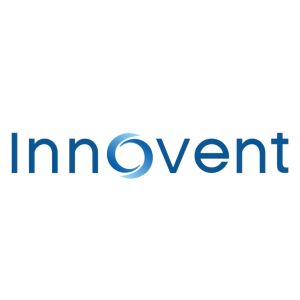Innovent Releases Final Analysis Results of ORIENT-16: the Phase 3 Study of Sintilimab in Combination with Chemotherapy for the First-Line Treatment of Gastric Cancer at the AACR Annual Meeting 2023
Rhea-AI Summary
Innovent Biologics announced the final analysis results of its Phase 3 study, ORIENT-16, at the AACR Annual Meeting 2023. The study evaluated sintilimab, an anti-PD-1 antibody, in combination with chemotherapy for advanced gastric or gastroesophageal junction (G/GEJ) cancer. Results showed a 41.3% reduction in the risk of death for patients with CPS ≥5 and a 6.3-month improvement in median overall survival (19.2 months vs. 12.9 months) compared to chemotherapy alone. The safety profile remained consistent with interim analyses, confirming sintilimab's role as a first-line standard of care. Sintilimab is now included in the National Reimbursement Drug List, enhancing access to this treatment option for patients in China, where gastric cancer has a high incidence and poor prognosis.
Positive
- Sintilimab demonstrated a 41.3% reduction in the risk of death for patients with CPS ≥5.
- The median overall survival improved by 6.3 months (19.2 months vs. 12.9 months) compared to chemotherapy alone.
- Included in the updated National Reimbursement Drug List (NRDL) in China, enhancing treatment accessibility.
Negative
- None.
News Market Reaction
On the day this news was published, IVBIY declined NaN%, reflecting a moderate negative market reaction.
Data tracked by StockTitan Argus on the day of publication.
As of data cutoff date (
- Sintilimab in combination with chemotherapy continuously demonstrated superior overall survival (OS) compared to placebo plus chemotherapy with a
41.3% reduction in the risk of death (HR 0.587 [95% CI: 0.467, 0.738]; P<0.0001) and a 6.3-month improvement in median OS (19.2 months vs. 12.9 months) in patients with CPS ≥5, and31.9% reduction in the risk of death (HR 0.681 [95% CI: 0.571, 0.812]; P<0.0001)and a 2.9-month improvement in mOS (15.2 months vs. 12.3 months) in all randomized patients. - In all randomized patients, the estimated OS rates at 2-year and 3-year for sintilimab plus chemotherapy vs chemotherapy were
37.6% vs20.6% and26.0% vs10.7% , respectively. In patients with CPS≥5, the estimated OS rates at 2-year and 3-year for sintilimab plus chemotherapy vs chemotherapy were43.6% vs22.0% and29.0% vs10.7% , respectively. In addition, OS benefits were consistent in all prespecified subgroup analyses. - The safety profile of this final analysis was consistent with that observed in previously reported interim analysis, and no additional safety signals were identified with additional 15-month follow-up.
The principal investigator of the ORIENT-16 study, Prof.
Dr.
About the ORIENT-16 Study
ORIENT-16 is a randomized, double-blind, multicenter Phase 3 clinical study evaluating sintilimab in combination with chemotherapy, compared to placebo in combination with chemotherapy, for the first-line treatment of unresectable, locally advanced, recurrent or metastatic gastric or gastroesophageal junction (GEJ) adenocarcinoma (ClinicalTrials.gov, NCT03745170). The primary endpoint was overall survival, in all randomized and in PD-L1 positive patients.
About Gastric Cancer
Gastric cancer is one of the most common malignant tumor types worldwide. According to GLOBOCAN estimates, there were approximately one million new cases and 769,000 new deaths of gastric cancer in 2020, making it the fifth most common cancer and third leading cause of cancer death globallyi[ii]. About half of all gastric cancer cases occurred in
About Sintilimab
Sintilimab, marketed as TYVYT® (sintilimab injection) in
In
- For the treatment of unresectable locally advanced, recurrent or metastatic gastric or gastroesophageal junction adenocarcinoma;
- For the treatment of unresectable locally advanced, recurrent or metastatic esophageal squamous cell carcinoma;
- For the treatment of unresectable locally advanced or metastatic non-squamous non-small cell lung cancer lacking EGFR or ALK driver gene mutations;
- For the treatment of unresectable locally advanced or metastatic squamous non-small cell lung cancer;
- For the treatment of unresectable or metastatic hepatocellular carcinoma with no prior systematic treatment;
- For the treatment of relapsed or refractory classic Hodgkin's lymphoma after two lines or later of systemic chemotherapy.
Innovent currently has the regulatory submission for sintilimab in combination with bevacizumab biosimilar and chemotherapy for EGFR-TKI failed EGFR-mutated non-squamous NSCLC under review in the
Additionally, two clinical studies of sintilimab have met their primary endpoints:
- Phase 2 study of sintilimab monotherapy as second-line treatment of esophageal squamous cell carcinoma;
- Phase 3 study of sintilimab monotherapy as second-line treatment for squamous NSCLC with disease progression following platinum-based chemotherapy.
About Innovent
Inspired by the spirit of "Start with Integrity, Succeed through Action," Innovent's mission is to develop, manufacture and commercialize high-quality biopharmaceutical products that are affordable to ordinary people. Established in 2011, Innovent is committed to developing, manufacturing and commercializing high-quality innovative medicines for the treatment of cancer, autoimmune disease, metabolic disorder and other major diseases. On
Since its inception, Innovent has developed a fully integrated multi-functional platform which includes R&D, CMC (Chemistry, Manufacturing, and Controls), clinical development and commercialization capabilities. Leveraging the platform, the company has built a robust pipeline of 35 valuable assets in the fields of cancer, metabolic disorder, autoimmune disease and other major therapeutic areas, with 8 approved products on the market. These include: TYVYT® (sintilimab injection), BYVASDA® (bevacizumab biosimilar injection), SULINNO® (adalimumab biosimilar injection), HALPRYZA® (rituximab biosimilar injection) , Pemazyre® (pemigatinib oral inhibitor), olverembatinib (BCR-ABL TKI) , Cyramza® (ramucirumab) and Retsevmo® (selpercatinib). An additional 3 assets are under NMPA NDA review, 5 assets are in Phase 3 or pivotal clinical trials, and 19 more molecules are in clinical studies.
Innovent has built an international team with advanced talent in high-end biological drug development and commercialization, including many global experts. The company has also entered into strategic collaborations with Eli Lilly and Company, Sanofi,
Forward-Looking Statements
This news release may contain certain forward-looking statements that are, by their nature, subject to significant risks and uncertainties. The words "anticipate", "believe", "estimate", "expect", "intend" and similar expressions, as they relate to Innovent, are intended to identify certain of such forward-looking statements. Innovent does not intend to update these forward-looking statements regularly.
These forward-looking statements are based on the existing beliefs, assumptions, expectations, estimates, projections and understandings of the management of Innovent with respect to future events at the time these statements are made. These statements are not a guarantee of future developments and are subject to risks, uncertainties and other factors, some of which are beyond Innovent's control and are difficult to predict. Consequently, actual results may differ materially from information contained in the forward-looking statements as a result of future changes or developments in our business, Innovent's competitive environment and political, economic, legal and social conditions.
Innovent, the Directors and the employees of Innovent assume (a) no obligation to correct or update the forward-looking statements contained in this site; and (b) no liability in the event that any of the forward-looking statements does not materialize or turn out to be incorrect.
[i] Sung H, Ferlay J, Siegel RL, et al. Global Cancer Statistics 2020: GLOBOCAN Estimates of Incidence and Mortality Worldwide for 36 Cancers in 185 Countries. CA Cancer J Clin. 2021; 71(3): 209-249.
[ii] Fuchs CS, Shitara K, Di Bartolomeo M, et al. Ramucirumab with cisplatin and fluoropyrimidine as first-line therapy in patients with metastatic gastric or junctional adenocarcinoma (RAINFALL): a double-blind, randomised, placebo-controlled, phase 3 trial. Lancet Oncol. 2019; 20(3): 420-435.
[iii] Wang H, Guo W, Hu Y, et al. Superiority of the 8th edition of the TNM staging system for predicting overall survival in gastric cancer: Comparative analysis of the 7th and 8th editions in a monoinstitutional cohort[J]. Molecular and Clinical Oncology, 2018, 9(4): 423-431.
[iv] Price TJ, Shapiro JD, Segelov E, Karapetis CS, Pavlakis N, Van Cutsem E, Shah MA, Kang YK, Tebbutt NC. Management of advanced gastric cancer. Expert Rev Gastroenterol Hepatol. 2012 Apr;6(2):199-208; quiz 209. doi: 10.1586/egh.11.103. PMID: 22375525.
[v] Wang J, Fei K, Jing H, et al. Durable blockade of PD-1 signaling links preclinical efficacy of sintilimab to its clinical benefit. mAbs 2019;11(8): 1443-1451.
SOURCE







